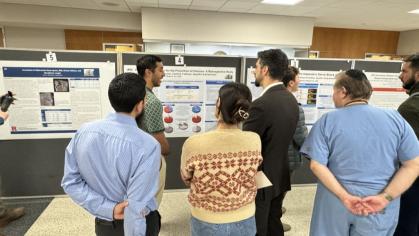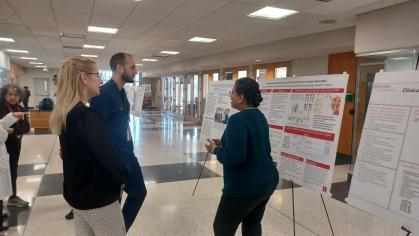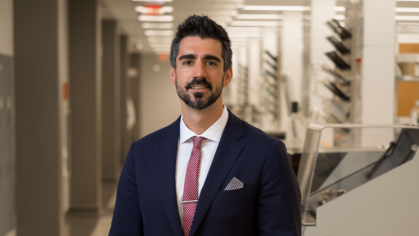New Study Explores Understudied Link Between Mental Health and Oral Health
 Mental health has been gaining traction in the literature, but in dental medicine, it’s still an underexplored subject. Among the handful of researchers working on this niche area is Vaishali Singhal, a member of Class of 1993 and an associate professor at RSDM and Rutgers School of Health Professions.
Mental health has been gaining traction in the literature, but in dental medicine, it’s still an underexplored subject. Among the handful of researchers working on this niche area is Vaishali Singhal, a member of Class of 1993 and an associate professor at RSDM and Rutgers School of Health Professions.
“From what I have understood, there are possibly one or two other dentists in the country who really focus on mental health,” said Singhal.
She’s now applying her expertise to new research that will shed light on the connection between mental health and oral health. The findings, she hopes, will be a step towards better preparing future and practicing dentists to treat patients with mental illness.
Receiving a one-year New Jersey Health Foundation grant, she gathered a cross-disciplinary and -institutional team, including RSDM’s Assistant Dean for Extramural Clinics Jill York, Ni Gao and Yuane Jia from SHP, and Jay Patel from Temple University's College of Public Health, to investigate disparities in oral health between dental patients with and without mental health conditions.
 Vaishali Singhal '93, associate professor at RSDM and Rutgers School of Health Professions, is the study's principal investigator.
Vaishali Singhal '93, associate professor at RSDM and Rutgers School of Health Professions, is the study's principal investigator.
“The population with mental illness usually has poorer health than the general population—and that includes oral health,” explained Singhal. Because of that, the team hypothesized that patients with mental illness experience higher oral diseases and poorer treatment outcomes compared to other patients.
To test this, they turned to RSDM’s electronic health records. They will closely examine the histories of 200,000 patients who visited the predoctoral clinic between 2014 and 2019 and evaluate each patient’s oral health by using an index called decayed missing filled teeth (DMFT). Then, they’ll compare results for patients with and without mental illness diagnoses. The researchers will also analyze clinic revisits to determine treatment outcomes.
“We would like to gather the evidence so we can develop new treatment guidelines to treat oral diseases in this population and develop continuing education courses for licensed dentists,” said Singhal, a member of the American Dental Education Association's Social and Behavioral Health Committee that’s tasked to revise curriculum on this topic. “One of the contributing factors [of poor oral health] that we believe—and other researchers have also found—is that dental practitioners are not very well prepared to treat this population.”
In addition to bringing about curriculum change, the findings will also serve as preliminary data for applying for a National Institutes of Health grant.
“I’d like to be able to do this [study] on a larger scale, possibly with multiple dental schools involved along the East Coast,” Singhal said. “That way, we can actually have greater evidence to change some of the curriculum guidelines.”



